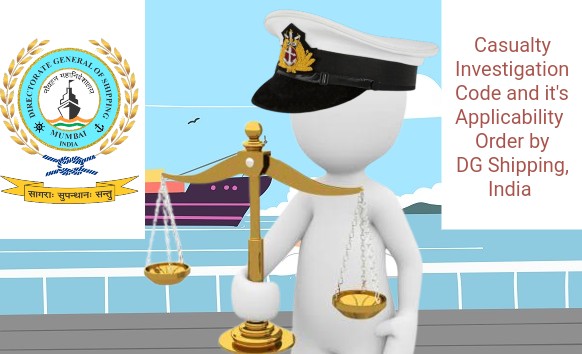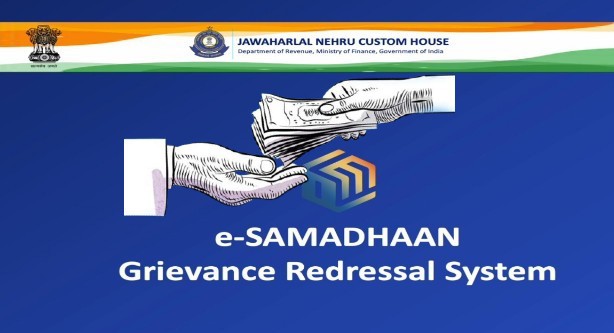Navigational Emergency Averted: Whistleblower Warns of Widespread Negligence and Corruption in Gujarat Maritime Board
Bhavnagar/Alang Sea Zone Faces Looming Threats from Overloaded Ships and Unseaworthy Tugs
Old Tugs, Overloaded Vessels & Regulatory Failures May Be Steering Gujarat’s Maritime Economy Toward Disaster
Maritime News, Gujarat, India : Once considered Gujarat’s monsoon-proof maritime asset, Bhavnagar Port now faces a double-edged threat: a severe decline in cargo revenue and a spiraling safety crisis allegedly fueled by corruption and regulatory apathy within the Gujarat Maritime Board (GMB).
In what maritime experts are calling a “ticking time bomb,” a whistleblower report has raised grave concerns over operational irregularities and systemic negligence within the Gujarat Maritime Board (GMB), particularly around the Bhavnagar and Alang Port zones. The revelations, shared under strict anonymity, allege that corruption and disregard for safety protocols are paving the way for navigational disasters in Gujarat’s coastal waters.
According to the report, cargo ships arriving at Bhavnagar Port are routinely overloaded to drafts exceeding 12 metres — violating the standing safety regulation that restricts entry to vessels below the 12m draft mark. Additionally, tugboats over 45 years old, some of which have long surpassed acceptable maritime safety life, are allegedly being permitted to operate in Gujarat’s waters.
Violations Ignoring Existing Safety Circulars and Safety Norms Flouted, Lives at Risk
An existing circular — widely accepted across Indian maritime safety governance — prohibits:
- Tugs / Ships older than 25 years from entering designated waters due to safety risks
- Entry of vessels with drafts exceeding 12 meters in Gujarat waters, particularly where port infrastructure and depth constraints cannot accommodate such loads.
Inaction, the source warns, will compromise both:
- Human lives (crew and coastal populations), and
- Ecological safety, risking oil or chemical spills in Gujarat’s marine zones
Yet, the whistleblower claims that port officers at Bhavnagar and Alang, along with certain nautical officers within GMB, are routinely bypassing these rules — allegedly under pressure from vested interests or due to internal corruption.
Alang Emergency Involving Unseaworthy Tug “Bazalt”
On 27 April 2025, a serious marine emergency was narrowly averted when the aging tug Bazalt, towing the chemical-laden MV STARLET, suffered engine failure and broke its towing line while en route to Alang. The tug, already flagged in multiple previous visits for unseaworthy conditions, became a liability in one of the densest ship recycling zones in the world.
The MV STARLET — reportedly carrying chemical residues — faced the risk of drifting or grounding, an event that could have triggered environmental contamination or even loss of life in the region.
Call for Immediate Action
The whistleblower has urged the Directorate General of Shipping (DG Shipping), National Disaster Management Authority (NDMA), and Ministry of Ports, Shipping and Waterways to:
- Investigate the role of the Bhavnagar Port Officer, Alang Port Officer, and GMB Nautical Officer.
- Audit current vessel permissions, especially those flouting draft and age limits.
- Suspend operations of all non-seaworthy tugs immediately and reassess emergency response protocols in the Alang region.
Industry Demands Accountability
Maritime unions and environmental watchdogs have long flagged poor oversight in the Gujarat port ecosystem, especially around ship-breaking hubs like Alang. This latest incident underlines the critical need for strict compliance and transparency.
With rising vessel traffic and hazardous cargoes, the failure to uphold marine safety norms not only endangers seafarers and coastal workers but also puts Gujarat’s coastline at risk of ecological catastrophe.
Cargo Decline Reveals Deeper Malaise
While safety corners are allegedly being cut, Bhavnagar’s cargo throughput is crumbling:
| Fiscal Year | Cargo Handled (MT) |
|---|---|
| 2021–22 | 2,753,012 |
| 2022–23 | 3,294,684 (peak) |
| 2023–24 | 2,872,864 |
| 2024–25 | 2,563,665 |
Despite its ability to operate year-round — unlike Dahej and Hazira — Bhavnagar has seen a 22% decline in cargo volumes since FY 2022–23.
The port’s monthly breakdown for FY 2024–25 reveals erratic operations, with zero coal imports in three separate months, and unreliable logistics strategies despite being a strategic node for industries in Gujarat, MP, Rajasthan, and Punjab.
Loss of Transshipment Activity and Local Employment
The port once thrived as a transshipment point during monsoons, when other ports downscaled operations. Now, with the discontinuation of offshore anchorage operations, local businesses — including barge operators, loaders, truckers, and port workers — are reeling under reduced employment and cash flow.
What Needs Urgent Action Stakeholders are now calling for:
- DGS Investigation: Immediate safety audits and inspections must be launched by the Directorate General of Shipping (DGS) directly and through a third-party technical audit of all operational vessels in Gujarat waters.
- GMB Accountability: A transparent inquiry into alleged corruption, particularly involving unsafe vessel clearances and towing permissions.
- Modernization Roadmap: Bhavnagar requires digitization, improved port handling systems, and a revival of transshipment infrastructure.
- Whistleblower Protection: The identity and concerns raised must be safeguarded, not suppressed, to prevent future disasters.
- Public Disclosure: Information about aging vessels and unsafe practices must be made public, as a statutory obligation to citizens and seafarers.
The Directorate General of Shipping and Ministry of Ports are expected to be questioned in the coming weeks about what proactive steps are being taken to prevent such lapses, and whether stricter oversight and penalties will be enforced.
“Ignoring safety today can lead to irreversible disasters tomorrow,” said a senior retired naval official when briefed on the incident.
Bhavnagar Must Not Be Another Maritime Tragedy in Waiting
Bhavnagar Port is not just an economic zone; it’s a lifeline for thousands of workers and a key node in India’s maritime strategy. But when unsafe tugs tow overloaded ships, and regulators look the other way, the region is only a few nautical miles away from catastrophe.
“From zero coal months to zero accountability — Bhavnagar’s fall is not due to tides, but due to tides being ignored,” says a retired maritime operations officer.
It’s time for the Government of Gujarat, GMB, and the Ministry of Ports, Shipping and Waterways to respond before negligence triggers irreversible damage




